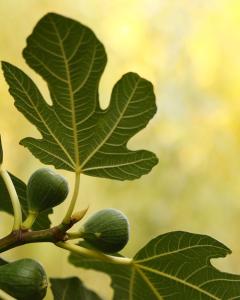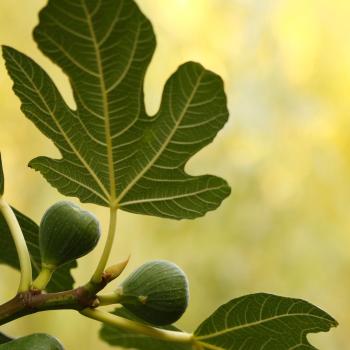Is There Anybody Who Has Not Experienced Suffering?
Everybody has. Every one of us has experienced suffering, including Jesus. It would be one thing to have a teacher who never experienced what they were teaching, but his parables aren’t just stories or theories. We can trust Jesus as our teacher, and not just because he’s God incarnate, but also because he’s been through it. He not only sees our suffering, he understands it.
Jesus knows how we respond to suffering. He knows our desire for control. When something happens beyond our control, we want there to be a reason and we want somebody to blame. We even go so far as to blame people for their own suffering.
Why do we do this? When we are faced with suffering, why would we respond with fault-finding? This is a temptation that I face as a mother. When my son is running through the house, and his toys are everywhere, he might trip and face-plant onto the hardwood floor. I want my first response to be love, and to ask, “are you okay?”. Sometimes that is my response, but not always. Sometimes my response is “that’s why you shouldn’t leave your toys lying around”, or “you shouldn’t run so fast”. I’m tempted to do fault-finding first, as if that is what’s needed first.
A Different Way Of Responding
“At that very time there were some present who told Jesus about the Galileans whose blood Pilate had mingled with their sacrifices. He asked them, “Do you think that because these Galileans suffered in this way they were worse sinners than all other Galileans? No, I tell you; but unless you repent, you will all perish as they did. Or those eighteen who were killed when the tower of Siloam fell on them–do you think that they were worse offenders than all the others living in Jerusalem? No, I tell you; but unless you repent, you will all perish just as they did.”
Then he told this parable: “A man had a fig tree planted in his vineyard; and he came looking for fruit on it and found none. So he said to the gardener, ‘See here! For three years I have come looking for fruit on this fig tree, and still I find none. Cut it down! Why should it be wasting the soil?’ He replied, ‘Sir, let it alone for one more year, until I dig around it and put manure on it. If it bears fruit next year, well and good; but if not, you can cut it down.'” Luke 13:1-9
In this Gospel lesson, Jesus references two different groups of people who suffered. And remember, there was no newspaper, so these events must have been very widely talked about. Jesus says that those who died in these tragedies were not worse sinners than anybody else. It’s sad that Jesus has to teach us this, because the crowd had already begun to judge them, not based on their lives, but based on their suffering.
Jesus teaches us a profoundly different way to respond to suffering.
A Tree in the Hands of the Gardener
Once there was man who planted a fig tree. When he sees that it bears no figs, he says, “cut it down, it’s wasting the soil”. Notice how quick he is to find fault with the tree, but not with how well it’s been taken care of. Even though this man is the vineyard owner, he doesn’t seem to know what the tree needs. He sees the suffering, but he doesn’t understand it.
Then the gardener comes, and he not only sees – he understands. He boldly says to the man, “let it alone”. He offers to tend to and fertilize the tree. He doesn’t just do this for a day, he offers to nurture it for a year. If it doesn’t bear fruit after being loved for a year, then they’ll cut it down. But this is a bit of a trick, because the gardener knew what the tree needed. This tree is going to be just fine in the hands of this gardener.
This is how Jesus responds to suffering, and not just in this parable. Jesus tended to people. He fed them, healed them, cried with them. This is not just alleviating suffering through meeting needs, it’s also loving people enough to care. Loving people enough that instead of turning away from their suffering, you move towards it.

Being A Resilient Witness
This love is resilient enough to be a witness to suffering. It’s not just that we don’t want to suffer, we don’t even want to see suffering. This shows up in the story when the vineyard owner doesn’t even want to see the tree anymore. This was like Mary watching Jesus die on the cross. She had no control over anything except herself, but her presence alone and her refusal to turn her back on him was a defiant act of love. Just being willing to see it, to be a witness, is one step towards love. We can’t get our hands dirty if we’re not even willing to look.
This the kind of love that Jesus offers to us. This is the love that sees your suffering and doesn’t turn away.
It’s love that sees your suffering and does not judge it. It’s the same love that sees the suffering of your neighbor, and the person begging for money on the median. This love sees the suffering of people in the world who are decimated by war or by cruel policies.
Jesus is the teacher and the lesson is love.
That might sound like an oversimplification, but it’s actually not simple. Sometimes Jesus teaches about love, and he calls it forgiveness. Sometimes Jesus teaches about love, and he calls it feeding, or clothing, or housing people. Sometimes Jesus teaches about love, and he calls it praying for those who persecute us. It’s not simple, it has to be intentional.
A Dirty Hands Kind of Love
And I’ll tell you, as a mom, love stinks. It is literally stinky sometimes.
Love is stinky when God calls us to spread manure around somebody else’s tree. Love is also stinky when God calls somebody else to spread manure around our tree.
We take turns, because everybody is somebody in the story.
- Have you felt like the tree in the hands of the vineyard owner? Was there ever a time when you were suffering, not getting what you needed, and were blamed for it?
- Have you ever felt like the tree in the hands of the gardener? Was there a time when you began to receive the support you needed, but you’ve been through a lot and still have a long road toward healing?
- Have you ever felt like the vineyard owner? He’s not the worst person on earth, he’s just someone who planted a tree with the hope it would bear fruit. Has there been a time when what you planted didn’t come to fruition? Have you felt frustrated or angry based on unmet expectations?
- Have you ever felt like the gardener? Has there been a time when you said, “Leave them alone. I’ll tend to them. Don’t you dare cut them down.”
Jesus is the teacher who loves us and tends to us, and he teaches us how to love and tend to others. This is what helps the sufferer to heal, this is what helps the barren tree to bear fruit, this is how we transform the world. This is the cultivation of the Kingdom of God.
We are the Body of Christ and the eyes that bear witness to the suffering of the world.
We are hands that get dirty and the voice that boldly intercedes: “leave them alone”. People are already hurting, they don’t need to be cut down. They need to be loved and supported.
The world needs the church – needs us – to hear these words of Jesus and to follow them. To repent, to receive his love and care, and then to extend that love and care to others.
Here I am, send me. I’ll be a witness. I’ll cultivate the Kingdom of God.
May our hearts be open, and may our hands be dirty as we dig deeper into what Jesus is inviting.
To read more posts, visit my column here. Check out my published writing in “Soul Food: Nourishing Essays on Contemplative Living and Leadership”. If you are interested in contemplative leadership and are between the ages of 25-40, visit Shalem.org to learn about Crossing the Threshold: Contemplative Foundations for Emerging Leaders.















